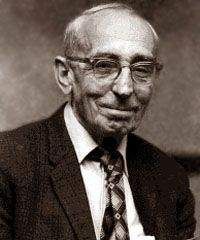Пользователь - o 3b3e7475144cf77c
getting messages from the duquesa, and he would sit tirelessly as long as any medium would
stand it. But he still hadn't made up his mind entirely; he revealed that to Lanny, not by a
direct statement, but by the trend of the questions he kept putting to the younger man.
It was permissible for Lanny to mention that a young friend of his had not been heard from
in Germany; whereupon this hiveful of mediums set to work secreting wax and honey for him.
Most of it appeared to be synthetic; Lanny became sure that some clever trickster had guessed
that the missing person was a relative of Johannes Robin, himself recently named in the
newspapers as missing, and now suddenly arriving with the Budds. Since Hansi had been
interviewed in Paris on the subject, it couldn't be he who was lost. Since Freddi had been in
London and was known to all friends of the Budds, it really wasn't much of a detective job to get
his name. Every issue of the Manchester Guardian was full of stories about concentration
camps and the mistreatment of the Jews; so the spirits began pouring out details—the only
trouble being that no two of them agreed on anything of importance.
There was only one medium whom Lanny knew and trusted, and that was Madame; but
her control, Tecumseh, was still cross with Lanny and wouldn't take any trouble for him. In
New York the control had been willing to repeat French sentences, syllable by syllable, but now
he refused to do the same for German. He said it was too ugly a language, with sounds that no
civilized tongue could get round—this from a chieftain of the Iroquois Indians! Tecumseh said
that Freddi was not in the spirit world, and that the spirits who tried to talk about Freddi
didn't seem to know anything definite. Tecumseh got so that he would say to a sitter: "Are you
going to ask me about that Jewish fellow?" It threatened to ruin Madame's mediumship and
her career.
VIII
Marceline had been invited to spend the summer with the Pomeroy-Nielsons, as a means of
making up for the yacht cruise which had been rudely snatched away. Marceline and Alfy,
having the same sixteen years, were shooting up tall and what the English call "leggy." It is the
age of self-consciousness and restlessness; many things were changing suddenly and confusing
their young minds. With other friends of the same age they played with delicate intimations of
love; they felt attraction, then shied away, took offense and made up, talked a great deal about
themselves and one another, and in various ways prepared for the serious business of matrimony.
Marceline exercised her impulse to tease Alfy by being interested in other boys. She had a
right to, hadn't she? Did she have to fall in love the way her family expected? What sort of old-
fashioned idea was that? The future baronet was proud, offended, angry, then exalted.
Himmelhoch jauchzend, zum Tode betrübt!
Irma and Lanny motored up for a week end, to see how things were going. A lovely old place
by the Thames, so restful after the storms and strains of the great world; especially after
Berlin, with its enormous and for the most part tasteless public buildings, its statues, crude and
cruel, celebrating military glory. Here at The Reaches everything was peaceful; the little old
river seemed tame and friendly, safe to go punting on, just right for lovers and poets.
It had been here a long time and would stay while generation after generation of baronets
appeared, grew up and studied at the proper schools, wore the proper comfortable clothes,
established "little theaters," and wrote articles for newspapers and weeklies proving that the
country was going to pot.
Here was Sir Alfred, tall, somewhat eccentric, but genial and full of humor; his hair had
turned gray while his mustache remained black. Excessive taxes had completely ruined him, he
declared, but he was absorbed in collecting records of twentieth-century British drama for a
museum which some rich friend was financing. Here was his kind and gentle wife, the most
attentive of hostesses. Here was Nina, helping to run this rambling old brick house, built onto
indefinitely by one generation after another and having so many fireplaces and chimneys that in
wintertime it would take one maid most of her time carrying coal-scuttles. Here were three very
lovely children, eager and happy, but taught to be quieter than any you would find in America.
Finally here was the lame ex-aviator whom Lanny considered the wisest man he knew, the
only one with whom he could exchange ideas with complete understanding. Rick was one who
had a right to know everything about Lanny's German adventure, and they went off on the
river where nobody could hear them if they talked in low tones, and Lanny told the story from
beginning to end. It would be better that not even Nina should hear it, because there is a
strong temptation for one woman to talk to the next, and so things get passed on and
presently come to the ears of some journalist. After all, Johannes was a pretty important man,
and his plundering would make a rare tale if properly dressed up.
Rick was quite shocked when he learned how Lanny had permitted the Berlin newspapers to
publish that he was a sympathetic inquirer into National Socialism. He said that a thing like
that would spread and might blacken Lanny forever; there would be no way to live it down, or
to get himself trusted again. Lanny said he didn't mind, if he could save Freddi; but Rick
insisted that a man had no right to make such a sacrifice. It wasn't just a question of saving
one individual, but of a cause which was entitled to defense. Socialism had to be fought for
against the monstrosity which had stolen its name and was trying to usurp its place in history.
Lanny had thought of that, but not enough, apparently; he felt rather bad about it.
"Listen, Rick," he said; "there have to be spies in every war, don't there?"
"I suppose so."
"What if I were to go into Germany and become a friend of those higher-ups, and get all the
dope and send it out to you?"
"They would soon get onto it, Lanny."
"Mightn't it be possible to be as clever as they?"
"A darned disagreeable job, I should think."
"I know; but Kurt did it in Paris, and got away with it."
"You're a very different man from Kurt. For one thing, you'd have to fool him; and do you
think you could?"
"Beauty insists that I couldn't; but I believe that if I took enough time, and put my mind to
it, I could at least keep him uncertain. I'd have to let him argue with me and convince me. You
know I have a rare good excuse for going; I'm an art expert, and Germany has a lot to sell.
That makes it easy for me to meet all sorts of people. I could collect evidence as to Nazi
outrages, and you could make it into a book."
"That's already been done, you'll be glad to hear." Rick revealed that a group of liberal
Englishmen had been busy assembling the data, and a work called The Brown Book of the
Hitler Terror was now in press and shortly to be published. It gave the details of two or three
hundred murders of prominent intellectuals and political opponents of the Nazi Regierung.
Lanny said: "There'll be other things worth reporting. If I go back to Germany on account of
Freddi, I'll get what facts I can and it'll be up to you to figure out what use to make of them."
IX
Lanny didn't mention the name of his German agent, Hugo Behr, but he was free to tell about
the left-wing movement developing in side the Nazi party. He thought it was of great
importance. It was the class struggle in a new and strange form; the war between the haves
and the have-nots, which apparently couldn't be kept out of any part of modern society. A leader
might sell out a popular movement, but could he carry his followers along? Many people in
Germany thought that Hitler could take his party wherever he chose, but Lanny saw it
differently—he said that Hitler was extraordinarily sensitive to the pressure of his followers, and
agile in keeping the lead wherever they were determined to go. "He got money from the biggest
industrialists, and Johannes insists that he's their man; but I believe he may fool them and jump
some way they have no idea of."
"Isn't there a third power," ventured Rick—"the army? Can anybody in Germany do anything
without the consent of the Reichswehr?"
Lanny told of his talk with Emil and with Stubendorf, both of whom had agreed that they
would obey the government loyally. Rick said: "Emil, yes; he's a subordinate. But would
Stubendorf tell you his real thoughts? My guess is that he and his Junker crowd will serve Hitler
so long as Hitler serves them; that is, to bring about rearmament, and get the Corridor and the
lost provinces back into the Fatherland."
"Naturally," admitted Lanny, "Stubendorf thinks first about his own property. What he'd do
after that I don't know."
"All Germans put their army first," insisted Rick. "The Social-Democrats brought about the
revolution with the help of the common soldiers, but right away they became prisoners of the
officer caste and never made any real change in the army's control. The Finance Minister of
the Republic always had to be a man satisfactory to the Reichswehr, and no matter how much
the politicians talked about social reforms they never made any cuts in the military budget."
Rick listened to all that his friend had to tell, and asked many questions, but refused to
believe that Hitler could be pushed or dragged to the left. "No revolutionist who has become
conservative ever goes back," he said, and added with a wry smile: "He learns to know the left
too well, and has made too many enemies among them."
Lanny asked: "Won't he go if he sees another wave of revolt on the way?"
"He won't see it, because it won't be coming. One wave is enough for one generation. Strasser
and Rohm and your friend Hugo may shout their heads off, but when Adolf tells them to shut
up they will shut. And it's my belief that whatever 'socializing' Adolf does in Germany will be to
make the Nazi party stronger, and enable him to smash Versailles more quickly and more
surely."
X
The Conference on Limitation of Armaments was practically dead, after more than a year of
futile efforts. But the nations couldn't give up trying to stop the general breakdown, and now
sixty-six of them were assembled in a World Economic Conference. It was meeting in South
Kensington with the usual fanfare about solving all problems. Rick, ever suspicious of what he
called capitalist statesmanship, said that it was an effort of the Bank of England to get back on
the gold standard, with the support of the United States, and of France, Switzerland, Holland,
and the few nations still ruled by their creditor classes. While Lanny was watching this show and
renewing old acquaintances among the journalists, President Roosevelt issued a manifesto
refusing to be tied to this gold program. His action was called "torpedoing" the Conference,
which at once proceeded to follow all the others into the graveyard of history.
Lord Wickthorpe was back at home, and desirous of repaying the hospitality which he had
enjoyed in Paris; the more so when he learned that his American friends had just returned
from Germany and had been meeting some of the Nazi head men. The young couple were invited
to spend several days at Wickthorpe Castle, one of the landmarks of England. It was of brown
sandstone, and the central structure with two great crenelated towers dated from Tudor days;
two wings and a rear extension had been added in the time of Queen Anne, but the unity of
style had been preserved. The ancient oaks were monuments of English permanence and solidity;
the lawns were kept green by rains and fogs from several seas, and kept smooth by flocks of
rolypoly sheep. Irma was fascinated by the place, and pleased her host by the naivete of her
commendations. When she heard that the estate had had to be broken up and tracts sold off to
pay taxes, she counted it among the major calamities of the late war.
The Dowager Lady Wickthorpe kept house for her bachelor son. There was a younger brother
whom Lanny had met at Rick's, and he had married an American girl whom Irma had known
in cafe society; so it was like a family party, easy and informal, yet dignified and impressive. It
was much easier to run an estate and a household in England, where everything was like a
grandfather's clock which you wound up and it ran, not for eight days but for eight years or
eight decades. There was no such thing as a servant problem, for your attendants were born, not
made; the oldest son of your shepherd learned to tend your sheep and the oldest son of your
butler learned to buttle. All masters were kind and all servants devoted and respectful; at least,
that was how it was supposed to be, and if anything was short of perfection it was carefully
hidden. Irma thought it was marvelous—until she discovered that she was expected to bathe
her priceless self in a painted tin tub which was brought in by one maid, followed by two others
bearing large pitchers of hot and cold water.
After the completion of this ceremony, she inquired: "Lanny, what do you suppose it would
cost to put modern plumbing into a place like this?"
He answered with a grin: "In the style of Shore Acres?"— referring to his own bathroom
with solid silver fixtures, and to Irma's of solid gold.
"I mean just ordinary Park Avenue."
"Are you thinking of buying this castle?"
Irma countered with another question. "Do you suppose you would be happy in England?"
"I am afraid you couldn’t get it, darling," he evaded in turn. "It’s bound to be entailed." He
assured her with a grave face that everything had to be handed down intact—not merely
towers and oaks and lawns, but servants and sheep and bathing facilities.
XI
Neighbors dropped in from time to time, and Lanny listened to upper-class Englishmen
discussing the problems of their world and his. They were not to be persuaded to take Adolf
Hitler and his party too seriously; in spite of his triumph he was still the clown, the pasty-




